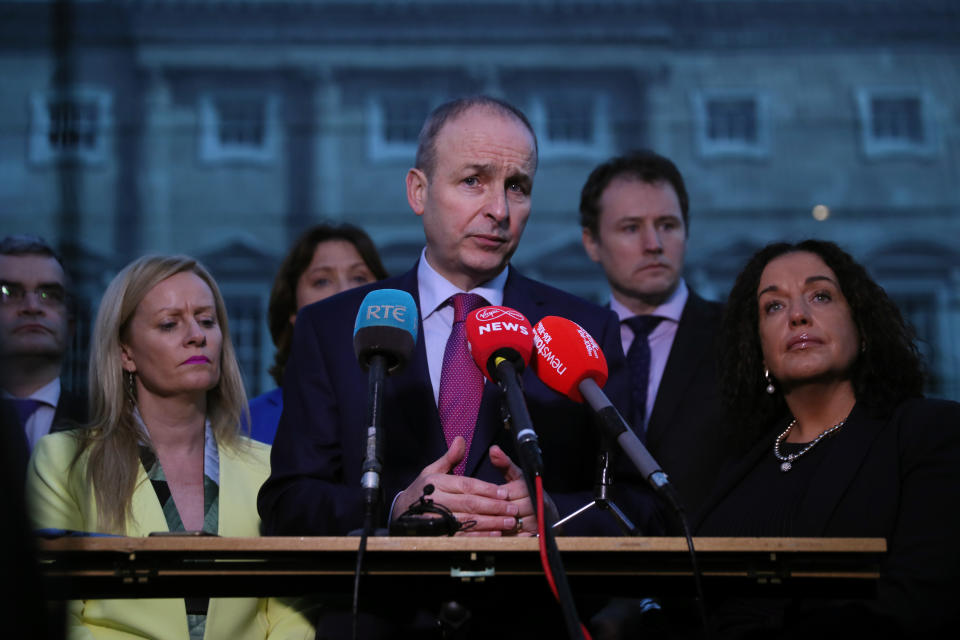How the Tory Brexit chaos brought Irish politics a year of stability

At around 3pm on Wednesday, with Westminster utterly transfixed by the Theresa May leadership challenge and the Brexit process in a new kind of chaos once again, things suddenly got pretty stable in Ireland.
Micheál Martin, the leader of the opposition Fianna Fáil party, unexpectedly announced that he would agree to extend the confidence-and-supply deal that sees his party prop up the governing Fine Gael party in parliament.
The timing was no coincidence. In fact, Martin wanted everyone to know just how deliberate it was, releasing his speech under the headline: “The chaos in Westminster will not be allowed to spread to Ireland.”
And, with that, he brought the tenuous negotiations between the two parties to an end and said that the deal would now last for the entirety of 2019, and that the next election would likely take place in the spring of 2020 — just shy of prime minister Leo Varadkar’s summer 2020 request.
Ireland is not used to this kind of stability. For example, in 2011, mere months after announcing a bailout of the country by the EU and the International Monetary Fund, then-prime minister Brian Cowen survived a motion of confidence as leader of Fianna Fáil only to step down four days later.
READ MORE: Theresa May clings on as prime minister after winning vote of no confidence
In his speech in Ireland’s parliament, Martin was pretty damning in his characterisation of British politics.
“While prime minister May works to salvage the current deal, she is confronted with a political class which has descended into open warfare between angry factions,” he said.
He called the confidence motion in May “only the latest outbreak from a fundamentalist group” that seems “determined to destroy all around them rather than ever compromise.
“The only thing which is clear is that no one has the faintest idea what the course of Brexit will be in the coming weeks and months, and potentially for much longer than that.”
Considering how intertwined the fate of Ireland is with the Brexit process — the country’s leading think tank warned only yesterday that a no-deal scenario would almost halve Irish economic growth — even the most cynical interpretation of Martin’s move would have you conclude it was done in the national interest.
READ MORE: No-deal Brexit would almost halve Irish economic growth in 2019
And you need not be cynical to acknowledge that those types of political overtures are few and far between in Westminster, where everyone seems intent on using Brexit to further their own interests.
But for Martin, it also so happens that now would not be a good time to trigger an election. Ireland’s electorate is equally bewildered by the goings-on in the UK, and wouldn’t look kindly on such a move.
And though opinion polls show that Fianna Fáil would improve on its 2016 performance, it would likely still trail Varadkar’s Fine Gael if a vote were held in the near future.
Either way, as every new day seems to bring a UK political event that sees Britons lose faith in the political process, Ireland, despite being almost as affected by Brexit, seems remarkably able to stay above the fray.

